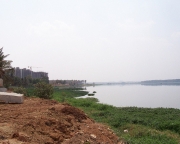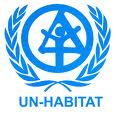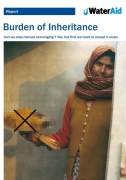/topics/governance
Governance
Need for a water meter for every flat in an apartment
Posted on 25 Apr, 2010 10:56 AMBy providing separate water meter to each flat at apartments, wastage of water which is being now observed can be avoided and WATER can very well be saved at each minute each day!
PRESENT SITUATION.
South Asia Rivers should be source of uniting people, not dividing them
Posted on 23 Apr, 2010 03:27 PMGuest Post by Himanshu Thakkar
New Delhi: A workshop organised yesterday on the sidelines of a South Asia civil society gathering under the banner of Assembly of a Union of South Asian Peoples at Jawaharlal Nehru University came up with a set of recommendations to address the question of conflict over shared rivers in the region. The key message from the meeting, which addressed issues pertaining to Pakistan, Bangladesh, Sri Lanka, Bhutan, Nepal and India, was that South Asia’s rivers should be a source of uniting peoples, not dividing them. The Assembly is being organised as a civil society counter to the official SAARC meeting to be held in Thimpu from 28-29 April 2010.
A study on Bellandur tank and changes due to urbanisation - A report by CASUMM
Posted on 21 Apr, 2010 05:08 PM This article by Collaborative for the Advancement of the Study of Urbanism through Mixed Media (CASUMM) presents the case of Bellandur Tank in Bangalore city and highlights how rapid unplanned urbanisation has led to the destruction of one of the biggest water bodies in Bangalore Urban district.
This article by Collaborative for the Advancement of the Study of Urbanism through Mixed Media (CASUMM) presents the case of Bellandur Tank in Bangalore city and highlights how rapid unplanned urbanisation has led to the destruction of one of the biggest water bodies in Bangalore Urban district.
The tank provided sustenance for people who lived in the areas surrounding it and provided water for irrigation, household purposes such as drinking, washing and cleaning, besides providing ample supply of fish. The tank was thus an integral part of the society and had a relationship with the communities residing around the tank.
Case studies on Water Management by Industry from the CII-GBC National Awards for Excellence in Water Management (2007)
Posted on 21 Apr, 2010 12:43 PM![]()
The CII-GBC National Awards for Excellence in Water Management 2007 are an important step towards encouraging, supporting and applauding industry efforts to conserve water and reduce toxic effluent discharge. As India's economic boom gathers more and more momentum with each passing year, industrial water and energy use and related environmental impacts are going to be among the most critical factors in resource sustainability debates in the country and elsewhere. The companies portrayed represent a wide spectrum of industry: paper, metals, agro-processing, synthetic fibre, petroleum, transport, cement, energy, fertilizer, soft drinks and more.
Financing on-site sanitation for the poor: A six country comparative review and analysis - A report by WSP (World Bank)
Posted on 20 Apr, 2010 06:58 PMThis report by the Water and Sanitation Programme (WSP) draws attention to the fact that a very high percentage (40%) of the population in the world does not have access to basic level of sanitation, which has serious health consequences and puts a considerable economic burden on the poor. The report explores the issue of what can be the most appropriate financing mechanisms to meet the sanitation needs of the poor.
Rejuvenation of community toilets - A policy paper by UN-HABITAT and Government of Madhya Pradesh
Posted on 20 Apr, 2010 04:12 PM The policy paper examines the condition of community toilet in terms of its infrastructure, operation & maintenance, uses and payment of user charges. The paper is a result of a joint collaboration between Water for Asian Cities (WAC) Programme of UN-HABITAT and the Directorate of Urban Administration & Development, Government of Madhya Pradesh.
The policy paper examines the condition of community toilet in terms of its infrastructure, operation & maintenance, uses and payment of user charges. The paper is a result of a joint collaboration between Water for Asian Cities (WAC) Programme of UN-HABITAT and the Directorate of Urban Administration & Development, Government of Madhya Pradesh.
In Madhya Pradesh, WAC is supporting Asian Development Bank-financed project in cities of Bhopal, Gwalior, Indore and Jabalpur to improve and expand urban water and sanitation services. This study has been taken up to monitor implementation of the water and sanitation related targets.
Sankalp 2010 Social Enterprise and Investment Forum, Intellecap, Mumbai
Posted on 20 Apr, 2010 12:55 PMOrganizer: Intellecap
Venue: Mumbai, Maharashtra, India
Description:
Sankalp Forum catalyzes entrepreneurship in the social business space. India's largest gathering of more than 400 social innovators, impact investors, policy leaders and change makers.
Water Policy in India - A brief overview: A paper by Centre for Public Policy (IIM Bangalore)
Posted on 20 Apr, 2010 06:30 AMThis paper by the Centre for Public Policy (CPP) of the Indian Institute of Management (IIM) Bangalore adds to the debate on water policy in India, and provides a general overview of the main characteristics of irrigation development post-Independence and a review of its beneficial and adverse impacts. The problems that need to be addressed and measures needed to resolve them are highlighted. It recognizes the vital role of expansion of irrigation in transforming agriculture from one of near stagnation in the pre-independence period to one of sustained growth during the past five decades.
Rainwater harvesting in Mumbai: Application of GIS
Posted on 19 Apr, 2010 07:36 PMThis blog post by Prakash Apte, draws attention to the increasing water demand in urban areas because of industrialisation and population growth by giving the example of Mumbai and points at the current scenario of the lack of availability of adequate and safe water supply to meet the needs of the ever increasing population in the city.
The author proposes that rainwater harvesting can be a viable solution in cities such as Mumbai to meet this increasing demand for water and can provide an opportunity for equitable, efficient and sustainable use of water resources.
There is an urgent need for evolving a rainwater harvesting system that is sustainable, replicable and economically viable and argues that the benefits of using rainwater harvesting can lead to a range of social, economic and environmental benefits and can contribute substantially to improving the quality of life in Mumbai.
Geographic Information Systems (GIS) has a role and application, in promoting a system and methodology for rain water harvesting and for providing the data needed to enable its large scale implementation in the context of Mumbai.
Burden of Inheritance: Can we stop manual scavenging? – A report by WaterAid India
Posted on 19 Apr, 2010 04:28 PM This report by WaterAid outlines how over one million people in the country continue to scrape an existence through manual scavenging, forced largely by social convention and caste prejudice, and calls for strong action to eradicate this practice.
This report by WaterAid outlines how over one million people in the country continue to scrape an existence through manual scavenging, forced largely by social convention and caste prejudice, and calls for strong action to eradicate this practice.
A violation of human rights, this discriminatory and demeaning practice was outlawed by the Indian Parliament in 1993 but still continues today. India has missed three deadlines to make the country 'manual-scavenger free'. India's booming cities help keep the practice alive, as there is often little infrastructure for sanitary sewerage and waste disposal systems.
The report tries to seek answers to why this practice continues despite:
- Availability of other dignified livelihood sources, for the people in this occupation?
- Other cleaner options for survival existing in cities and towns?
- Feasible and viable technological alternatives being available to dry toilets, one of the drivers of this occupation?





